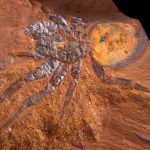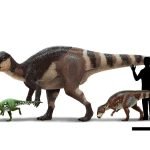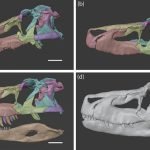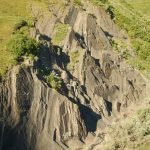Scientists discover the biggest fossil spider in Australia
In a groundbreaking discovery, scientists from the Australian Museum (AM) and the University of New South Wales (UNSW) have uncovered a fossil of a...
How flowering plants became nature’s survivors after dinosaurs went extinct
Did you know that flowering plants are like the superheroes of the plant world?
A new study shows that they managed to survive the massive...
This 265-million-year-old mega predator ruled South America before dinosaurs, shows study
Before the dinosaurs roamed the Earth, there was an even older, super big predator that owned the land.
Scientists have discovered an amazing fossil of...
How did plesiosaurs get their super-long necks? New fossils give clues
Ever wonder how some dinosaurs got really long necks?
Imagine a marine reptile, like the plesiosaur, with a neck five times longer than its body!
Scientists...
Europe’s unique dinosaurs: Meet the Rhabdodontids
When we think about dinosaurs, we usually imagine famous ones like T-Rex or Triceratops.
But did you know Europe had its own special dinosaurs?
Around 100...
Were dinosaurs in trouble before the asteroid impact? New study says no.
If you've ever wondered what kind of dinosaurs lived in Africa just before they all disappeared, we've got some exciting news for you!
Scientists in...
How a 23-million-year-old otter-like seal used its whiskers to forage for food
Ever wonder how animals that live in the water find their food?
Well, seals use their whiskers to feel vibrations in the water and locate...
This giant ancient reptile had a bite no stronger than some modern crocs
Long, long ago, about 230 million years back, there was a massive reptile named Saurosuchus.
It was believed to be one of the top predators...
Scientists discover dinosaur party grounds in Alaska’s Denali Park
In Alaska's famous Denali National Park, scientists from the University of Alaska Fairbanks have found a massive area filled with ancient dinosaur footprints!
They've named...
How ancient sea bugs protected themselves and breathed easier
Have you ever heard of trilobites?
Imagine bugs living in the sea hundreds of millions of years ago, long before the dinosaurs.
These ancient creatures had...










